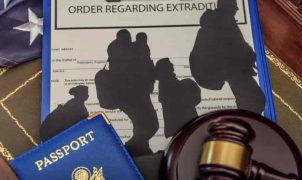Outside of television shows or movies, you may have no knowledge of what lawyers are or what they do. While fictional depictions can be helpful, they are not always accurate. The following are a few commonly asked questions about lawyers.

What exactly is a lawyer?
A lawyer (also called attorney, counsel, or counselor) is a licensed professional who advises and represents others in legal matters. Today’s lawyer can be young or old, male or female. Nearly one-third of all lawyers are under thirty-five years old. Almost half of the law students today are women, and women may ultimately be as numerous in the profession as men.
I come from another country, and I need to hire a lawyer. Are notaries public lawyers?
A “notary public,” an “accountant,” or a “certified public accountant” is not necessarily a lawyer. Do not assume that titles such as notary public mean the same thing as similar terms in your own language. In some countries, a lawyer is called a “barrister” or a “solicitor.”
What are a lawyer’s main duties?
A lawyer has two main duties: to uphold the law while also protecting a client’s rights. To carry out these duties, a lawyer should understand the law and be an effective communicator.
Is most of a lawyer’s time spent in court?
No. Most lawyers normally spend more time in an office than in a courtroom. The practice of law most often involves researching legal developments, investigating facts, writing and preparing legal documents, giving advice, and settling disputes.

What are the professional requirements for becoming a lawyer?
To understand how laws and the legal system work, lawyers must go through special schooling. Each state has enacted standards that must be met before a person is licensed to practice law there. Before being allowed to practice law in most states, a person must:
- Have a bachelor’s degree or its equivalent.
- Complete three years at an ABA-accredited law school.
- Pass a state bar examination, which usually lasts for two or three days. The exam tests knowledge in selected areas of law. There are also required tests on professional ethics and responsibility.
- Pass a character and fitness review. Applicants for law licenses must be approved by a committee that investigates character and background.
- Take an oath, usually swearing to support the laws and the state and federal constitutions.
- Receive a license from the highest court in the state, usually the state supreme court.
Once licensed in one state, is a lawyer allowed to practice law in all states?
Not automatically. To become licensed in more than one state, a lawyer must usually comply with each state’s bar admission requirements. Some states, however, permit licensed out-of-state lawyers to practice law if they have done so in another state for several years and the new state’s highest court approves them. Many states also have provisions for lawyers to participate in specific cases in states where they are not licensed. The lawyer in such a case is said to be appearing pro hoc vice, which means “for this one particular occasion.”
If I have a legal problem, do I have to hire a lawyer?
Not necessarily – you may represent yourself. And, in some specialized situations, such as bringing a complaint before a government agency (for example, a dispute over Social Security or Medicare benefits), nonlawyers or paralegals may be qualified to represent you. (Paralegals are nonlawyers who have received training that enables them to assist lawyers in a number of tasks; they typically cannot represent clients in court.) If you are in this situation, ask the government agency involved what types of legal representatives are acceptable.
There are many matters you can deal with yourself, if you know how to go about it. For example, you can represent yourself in traffic or small-claims court, or engage in negotiations and enter into contracts on your own. But if you are not sure about the consequences of your actions or are uncertain about how to proceed, getting some quick legal advice from a lawyer could be very helpful in preventing problems down the road.

Why does it sound like lawyers speak and write in a totally different language?
Lawyers and others trained in the law often use legal terms as shorthand to express complicated ideas or principles. These words and phrases, many rooted in Latin, are often jokingly referred to as a foreign language—legalese. Although some legalese may be necessary in order to communicate certain ideas precisely, a document that is understood by very few of its readers is just plain poor communication.
Since 1978, federal regulations are required to be “written in plain English and understandable to those who must comply” with them. Many states also have laws requiring that insurance policies, leases, and consumer contracts be written in plain English. Of particular importance is the trend in law schools to discourage the use of legalese and to encourage the use of plain, comprehensible English.




















































































































































